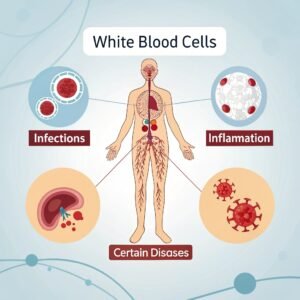Why Do We Dream? Unlocking the Mysteries of the Sleeping Mind.
Dreams have fascinated humans for centuries, sparking curiosity and theories across cultures. But what does modern science tell us about why we dream?
What Are Dreams?
Dreams are a series of images, thoughts, and sensations occurring during sleep, primarily during the REM (Rapid Eye Movement) stage. While the content can be fantastical or mundane, their purpose remains a mystery that scientists continue to study.
Leading Theories on Why Do We Dream.
- Memory Consolidation
Dreams may play a role in processing and storing memories. During sleep, the brain organizes experiences, connects new information to existing knowledge, and strengthens important memories while discarding irrelevant ones. - Emotional Regulation
Dreaming helps process emotions and reduce stress. By replaying or reframing emotional events, the brain may allow us to cope with challenges and maintain psychological balance. - Problem-Solving
some theories suggest dreams aid in creative thinking and problem-solving. The brain, freed from the constraints of reality, can explore unconventional solutions—hence the term “sleep on it.” - Threat Simulation
From an evolutionary perspective, dreaming might have served as practice for survival scenarios. Dreams of danger could prepare early humans to respond to threats in real life.
What Influences Our Dreams?
Several factors shape the content and intensity of dreams:
- Daily Experiences: Events, thoughts, and emotions from waking life often appear in dreams.
- Diet and Lifestyle: Heavy meals, alcohol, or stress can affect dreaming.
- Sleep Quality: Interrupted sleep can lead to vivid or fragmented dreams.
- Medications: Certain drugs, especially those affecting brain chemistry, can alter dream patterns.

Why Do Our Dreams Feel So Real?
The brain’s activity during REM sleep mimics waking life, with heightened activity in the visual and emotional processing centers. However, the prefrontal cortex (the part of the brain that controls higher-level cognitive functions, such as decision-making, emotions, and personality), responsible for logic, is less active, explaining the surreal and illogical nature of dreams.
Do Dreams Have Meaning?
While some believe dreams hold symbolic significance, there is no scientific consensus. Psychologists like Freud and Jung proposed theories of subconscious desires and archetypes, but many modern scientists view dreams as random neural activity.
Final Thoughts why do we dream?
Dreams remain one of neuroscience’s great mysteries. Whether they serve a functional purpose or are merely a byproduct of a busy brain, they offer a fascinating glimpse into the mind’s workings. For now, dreams continue to inspire wonder, creativity, and a deeper connection to ourselves.
NOTE: – IT IS ALWAYS RECOMMENDED TO CONSULT YOUR HEALTH CARE PROFESSIONAL. ALL DATA SHARED HERE ARE FOR EDUCATIONAL PURPOSES ONLY.









